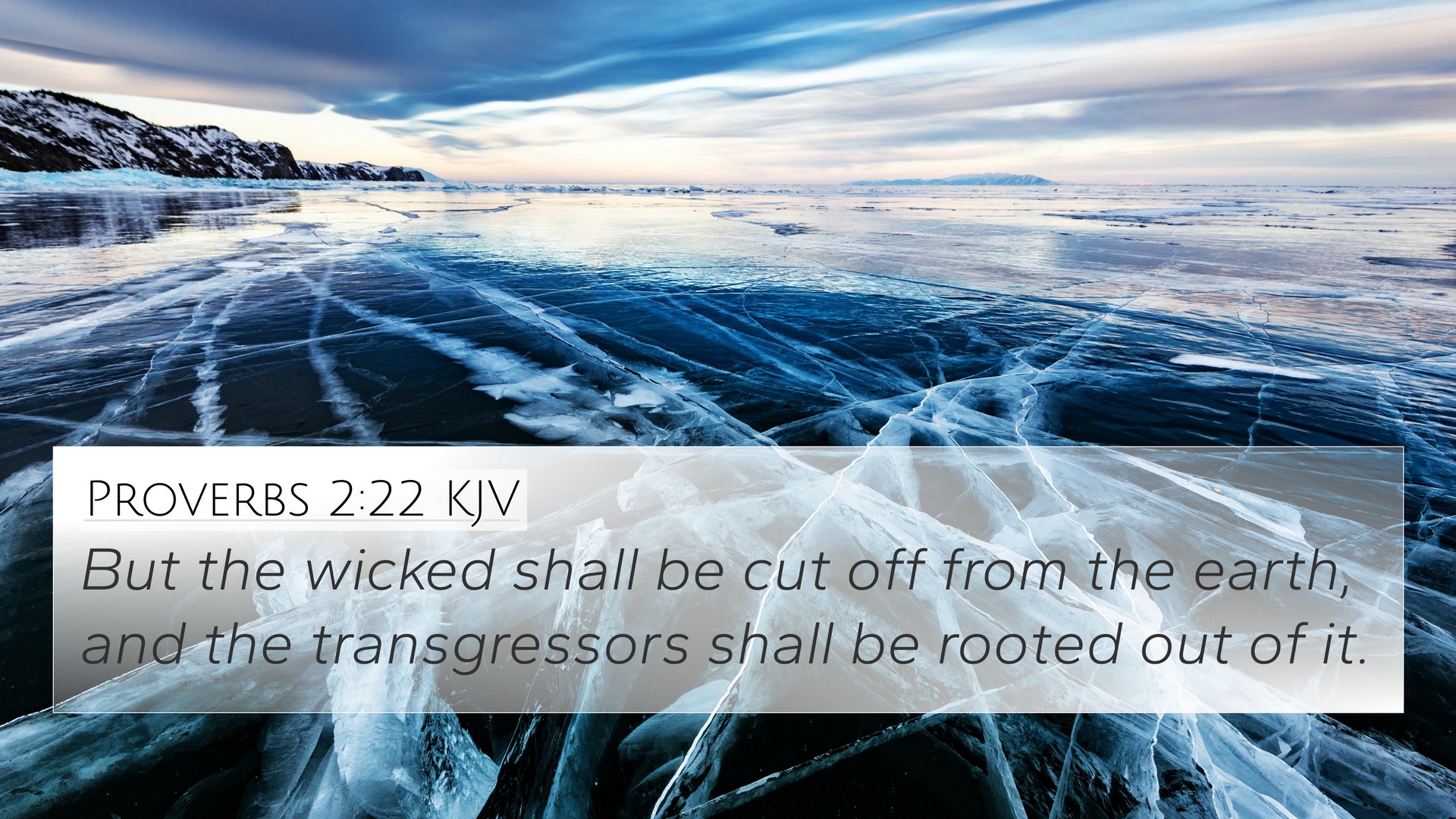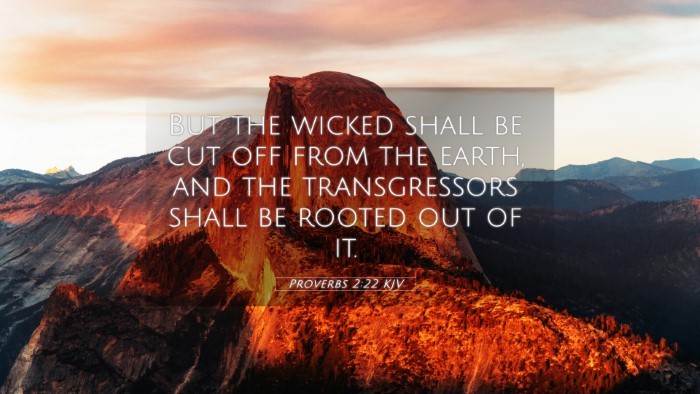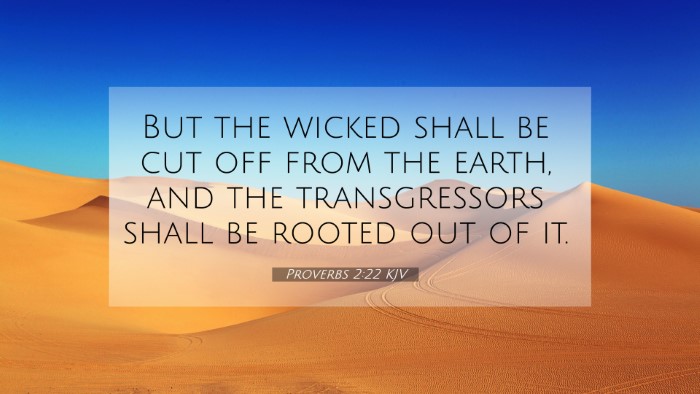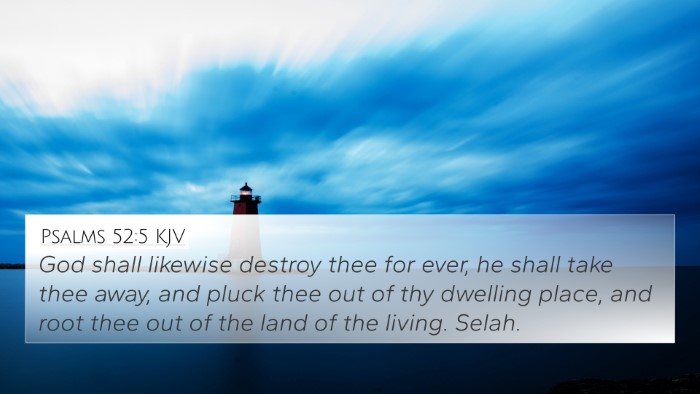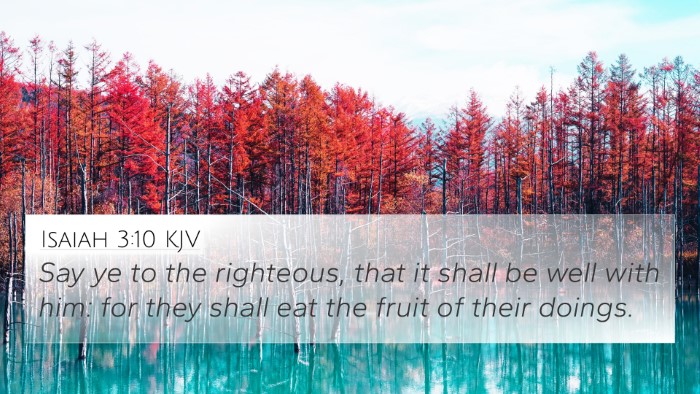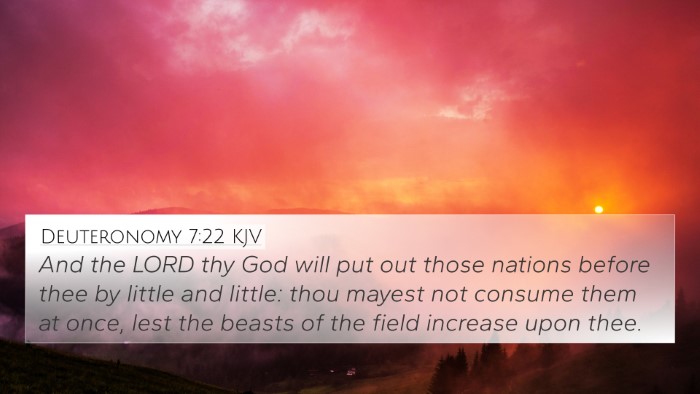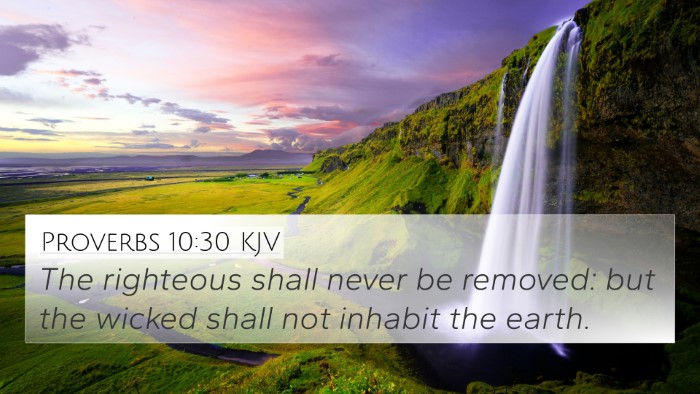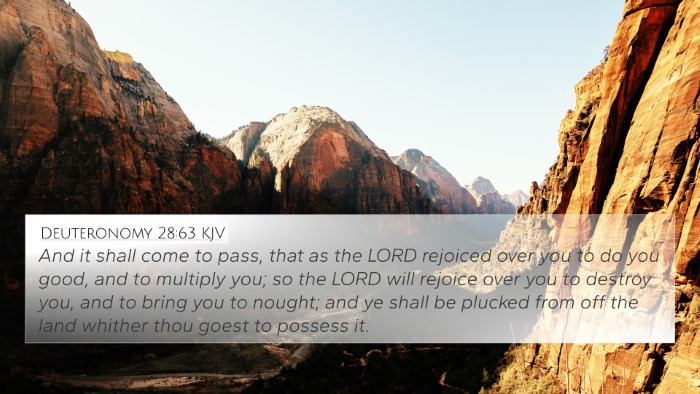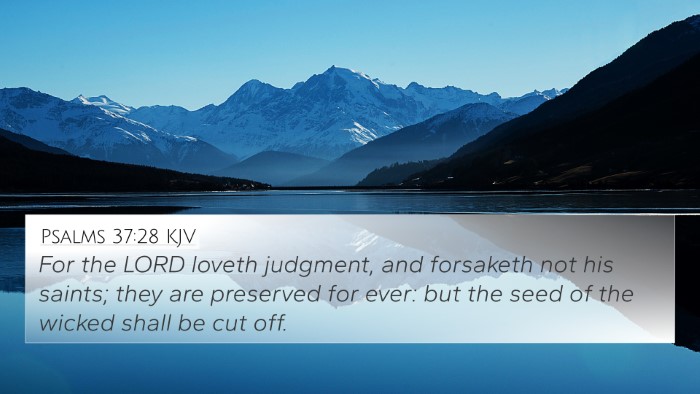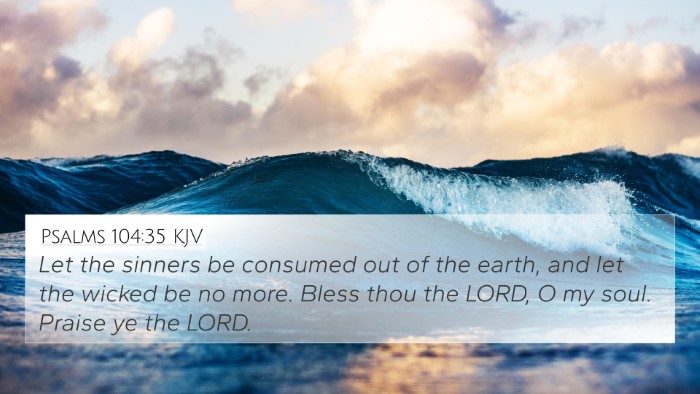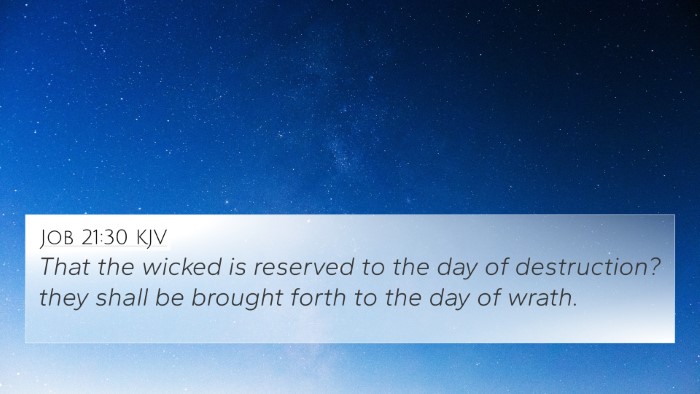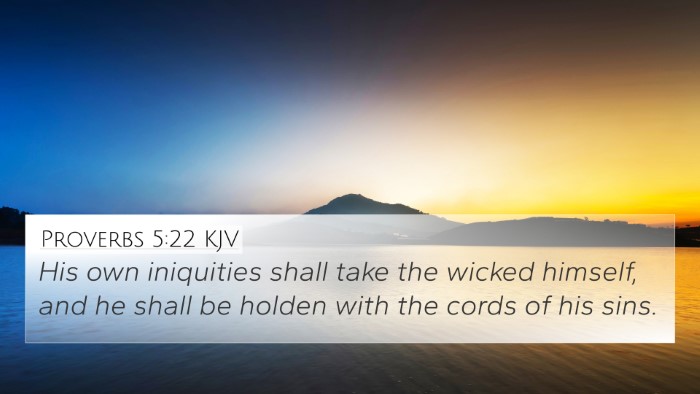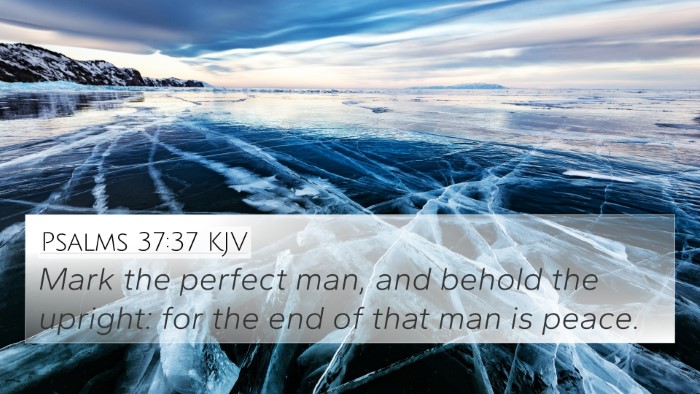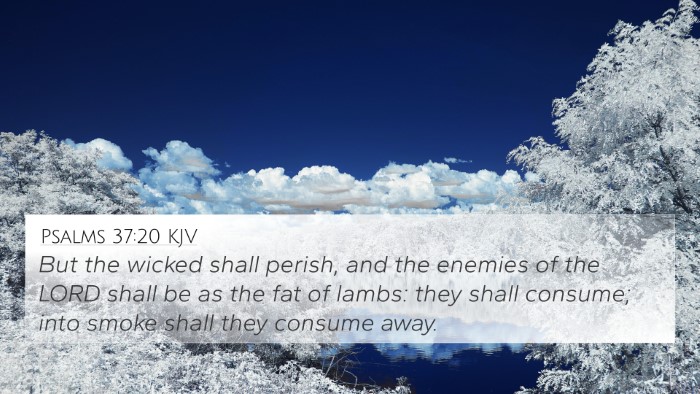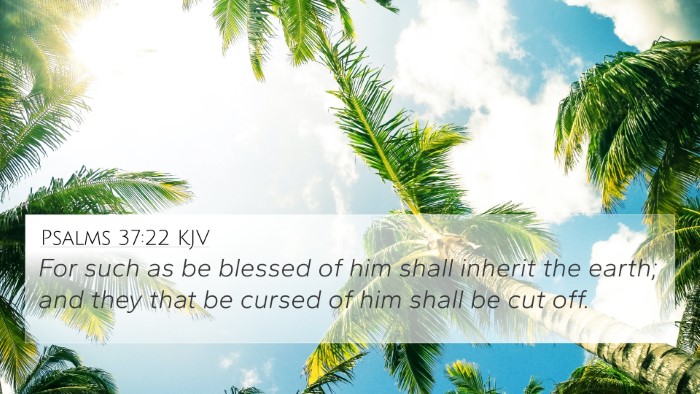Understanding Proverbs 2:22
Proverbs 2:22 states: "But the wicked shall be cut off from the earth, and the transgressors shall be rooted out of it." This verse encapsulates a powerful message about the fate of the wicked contrasted with the righteous. Below is a summarized interpretation of this scripture, combining insights from various esteemed public domain commentaries.
Commentary Insights
-
Matthew Henry:
Henry emphasizes that the wicked, those who oppose God's ways, will ultimately face divine judgment. He notes that their elimination from the earth signifies both a physical and spiritual separation from the blessings that come from living in harmony with God's will.
-
Albert Barnes:
Barnes discusses the notion of being "cut off," which denotes a complete destruction or loss of position in the covenant community. He interprets this as a warning to the unfaithful, emphasizing that their actions lead to dire consequences in both earthly life and eternity.
-
Adam Clarke:
Clarke offers a broader theological perspective, linking the fate of the wicked to covenantal faithfulness. He indicates that transgressors represent a more intense rebellion against God, resulting in their expulsion from the land that symbolizes God’s favor.
Theological Themes
This verse presents significant themes that resonate throughout the Bible:
-
Divine Justice:
The idea that God will bring justice to the earth reflects a central biblical theme. The wicked will be judged, and righteousness will ultimately prevail.
-
Covenantal Relationship:
The importance of maintaining a faithful relationship with God is a recurrent message in Scripture. Proverbs 2:22 serves as a reminder that straying from this relationship leads to severe consequences.
Cross-References
Proverbs 2:22 can be cross-referenced with several other scriptures, which illuminate its themes and offer a comprehensive biblical understanding:
- Psalm 37:9: "For evildoers shall be cut off: but those that wait upon the Lord, they shall inherit the earth."
- Proverbs 10:30: "The righteous shall never be removed: but the wicked shall not inhabit the earth."
- Isaiah 11:4: "But with righteousness shall he judge the poor, and reprove with equity for the meek of the earth: and he shall smite the earth with the rod of his mouth, and with the breath of his lips shall he slay the wicked."
- Matthew 24:51: "And shall cut him asunder, and appoint him his portion with the hypocrites: there shall be weeping and gnashing of teeth."
- Galatians 6:7: "Be not deceived; God is not mocked: for whatsoever a man soweth, that shall he also reap."
- Romans 1:18: "For the wrath of God is revealed from heaven against all ungodliness and unrighteousness of men, who hold the truth in unrighteousness."
- Revelation 21:8: "But the fearful, and unbelieving, and the abominable, and murderers, and whoremongers, and sorcerers, and idolaters, and all liars, shall have their part in the lake which burneth with fire and brimstone: which is the second death."
Interpretative Themes
Analyzing Proverbs 2:22 through a comparative lens with these cross-references reveals deeper interpretative themes:
-
Fate of the Wicked:
The consistent message across these scriptures indicates a definitive outcome for those who defy God's law. The imagery of being "cut off" and "rooted out" highlights the severity of divine judgment.
-
Encouragement for the Righteous:
In contrast, the promise of land inheritance for the righteous serves as a powerful motivator for believers to remain steadfast in their faith and actions.
Application and Reflection
Understanding Proverbs 2:22 and its implications can lead to profound personal reflection:
- Self-Examination:
Believers are encouraged to evaluate their choices and lifestyles in light of this scripture, ensuring alignment with God's commands.
- Encouragement to Others:
Sharing the message of Proverbs 2:22 with others serves as a reminder of God’s justice and the importance of righteousness in our daily lives.
Tools for Further Study
For those eager to explore more about Proverbs 2:22 and its connections, consider utilizing various resources:
-
Bible Concordance:
A concordance can assist in locating similar terms and phrases used throughout the Scriptures, enhancing your understanding of biblical language and themes.
-
Bible Cross-Reference Guide:
This tool allows for the identification of related scriptures, fostering a deeper understanding of biblical interconnections.
-
Cross-Reference Bible Study:
Engaging in this study method can yield comprehensive insights into scriptural relationships and reinforce theological concepts.
